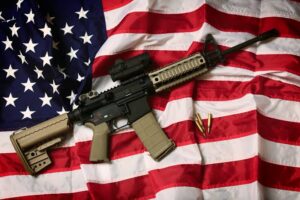What is gun culture? Cultural variations and trends across the United States

Gun culture in the United States is a complex tapestry of attitudes, beliefs, and behaviors surrounding firearms. It’s deeply rooted in history, particularly the nation’s frontier past and the Second Amendment right to bear arms. However, it’s also a subject of ongoing debate, with significant divisions on issues like gun control, self-defense, and the role of firearms in society.
Historical Roots:
-
Frontier Mythology:
The idea of the armed citizen protecting themselves and their community has been a powerful narrative in American history, dating back to the westward expansion.
-
Second Amendment:
The Second Amendment to the U.S. Constitution protects the right to keep and bear arms, contributing to the legal framework surrounding gun ownership.
-
Early Gun Use:
Guns were initially used for hunting, protection, and defense, and later became intertwined with popular culture through movies and television.
Current Landscape:
-
High Gun Ownership:
The U.S. has a significantly higher rate of civilian gun ownership than most other developed countries, with approximately 77 million adults owning guns.
-
Self-Defense as a Motivator:
A primary reason for gun ownership in the U.S. is self-defense, with many gun owners feeling that firearms are necessary for personal protection according to a YouTube video analysis.
-
Diverse Motivations:
Gun ownership is diverse, with some viewing guns as symbols of freedom and masculinity, while others prioritize recreational activities like hunting or target shooting.
-
Gun Rights vs. Gun Control:
Gun culture is deeply intertwined with the debate between gun rights advocates and those who support stricter gun control measures. This debate is often polarized, with political affiliations playing a significant role.
-
Impact of Mass Shootings:
Mass shootings have intensified the debate about gun control and have led to increased calls for stricter regulations, including background checks and bans on certain types of firearms.
-
Cultural Symbolism:
Guns have become powerful symbols in American culture, sometimes associated with strength, power, and even religious beliefs.
Impact and Consequences:
-
Suicide Rates:
The United States has a higher rate of gun-related suicides compared to other developed nations, highlighting a significant public health concern.
-
Violence and Crime:
Firearms are frequently used in violent crimes, and the presence of guns can escalate conflict and increase the risk of injury or death.
-
Impact on Communities:
Gun violence disproportionately affects certain communities, particularly communities of color, and can lead to trauma, fear, and a sense of insecurity.
Different Perspectives:
-
Gun Owners:
Some gun owners feel that they are being unfairly targeted by gun control measures and that their rights are being infringed upon. According to a YouTube video analysis, they often emphasize the importance of responsible gun ownership and safety training.
-
Non-Gun Owners:Non-gun owners may feel unsafe due to the prevalence of guns and the risk of gun violence, and they may advocate for stricter gun control laws.